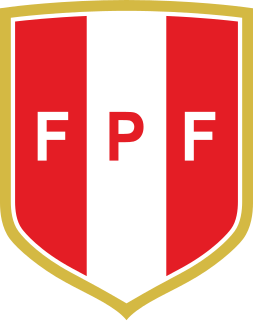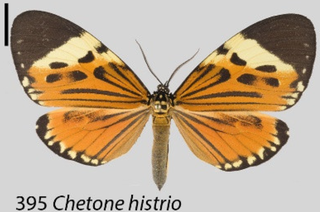
South America is a continent entirely in the Western Hemisphere and mostly in the Southern Hemisphere, with a relatively small portion in the Northern Hemisphere. It can also be described as the southern subregion of a single continent called America.

The Brazil national football team, nicknamed Seleção Canarinho, represents Brazil in men's international football and is administered by the Brazilian Football Confederation (CBF), the governing body for football in Brazil. They have been a member of FIFA since 1923 and a member of CONMEBOL since 1916.

The 1978 FIFA World Cup was the 11th edition of the FIFA World Cup, a quadrennial international football world championship tournament among the men's senior national teams. It was held in Argentina between 1 and 25 June.

Peru, officially the Republic of Peru, is a country in western South America. It is bordered in the north by Ecuador and Colombia, in the east by Brazil, in the southeast by Bolivia, in the south by Chile, and in the south and west by the Pacific Ocean. Peru is a megadiverse country with habitats ranging from the arid plains of the Pacific coastal region in the west to the peaks of the Andes mountains extending from the north to the southeast of the country to the tropical Amazon basin rainforest in the east with the Amazon River. Peru has a population of 32 million, and its capital and largest city is Lima. At 1.28 million km2, Peru is the 19th largest country in the world, and the third largest in South America.

This is a gallery of flags of South American countries and affiliated international organizations.

The Peru national under-17 football team represents Peru in international under-17 football competitions and is overseen by the Federacion Peruana de Futbol.

Chetone is a genus of tiger moths in the family Erebidae. The genus was erected by Jean Baptiste Boisduval in 1870.

The South American Division (SAD) of Seventh-day Adventists is a sub-entity of the General Conference of Seventh-day Adventists, which oversees the Church's work in most of South America, which includes the nations of Argentina, Bolivia, Brazil, Chile, Ecuador, Peru, Paraguay, and Uruguay. Its headquarters is in Brasilia, Brazil. The Division membership as of June 30, 2021 is 2,545,366
Phaeochlaena hazara is a moth of the family Notodontidae first described by Arthur Gardiner Butler in 1871. It is found in Brazil, Ecuador, Peru and French Guiana.

Chetone catilina is a moth of the family Erebidae. It was described by Pieter Cramer in 1775. It is found in French Guiana, Venezuela and Suriname.

Chetone histrio, or Boisduval's tiger, is a moth of the family Erebidae. It was described by Jean Baptiste Boisduval in 1870. It is found in Honduras, Guatemala and Peru.

Chetone hydra is a moth of the family Erebidae. It was described by Arthur Gardiner Butler in 1871. It is found in Ecuador and Peru.
Chetone isse is a moth of the family Erebidae. It was described by Jacob Hübner in 1831. It is found in Brazil.
Chetone malankiatae is a moth of the family Erebidae. It was described by Strand in 1921. It is found in Peru.
Chetone phyleis is a moth of the family Erebidae. It was described by Herbert Druce in 1885. It is found in Ecuador and Peru.
Chetone histriomorpha is a moth of the family Erebidae. It was described by Hering in 1925. It is found in Ecuador.
Chetone zuleika is a moth of the family Erebidae first described by Vitor Osmar Becker and David T. Goodger in 2013. It is found in Panama, Colombia and Brazil.










